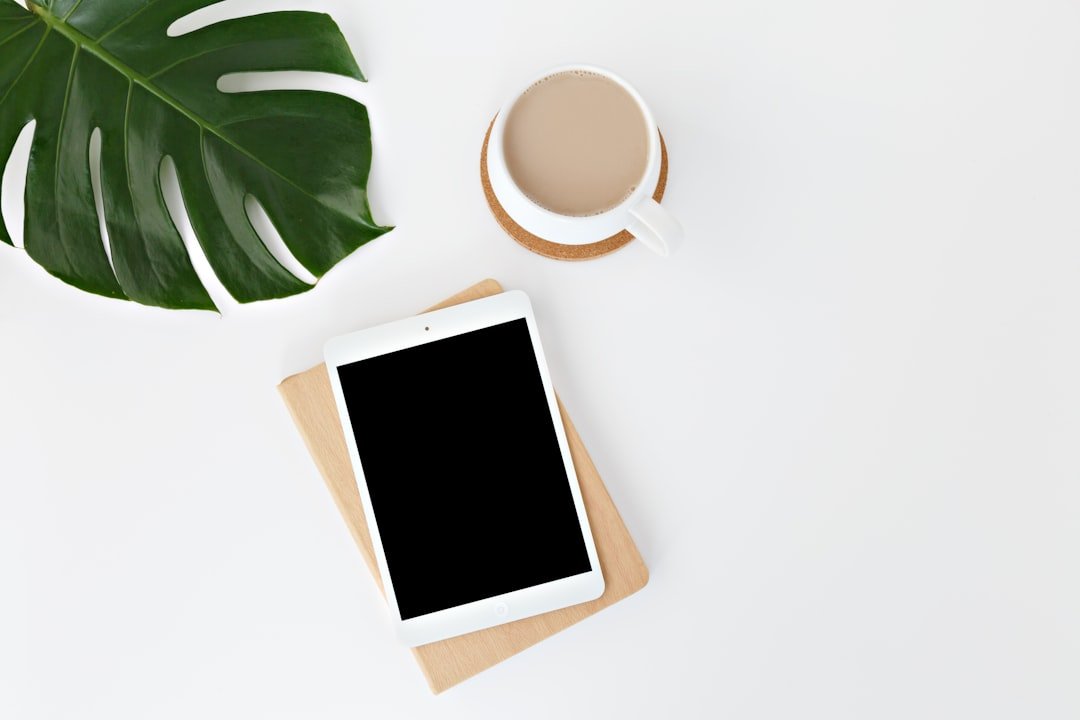In today’s fast-paced and digital world, traditional paper planners are being replaced by digital planners. Digital planners are essentially electronic versions of traditional paper planners, which can be accessed and used on various electronic devices such as smartphones, tablets, and computers. These digital planners offer a wide range of features and benefits that make them an attractive option for individuals looking to stay organized and productive in their personal and professional lives.
Digital planners come in various formats, including apps, software programs, and online platforms, each offering unique features and capabilities. They provide users with the ability to schedule appointments, set reminders, track tasks, take notes, and even collaborate with others in real-time. With the convenience of being able to access and update their planner from anywhere with an internet connection, digital planners have become an essential tool for many individuals seeking to streamline their organizational processes and improve their time management skills.
Key Takeaways
- Digital planners are electronic versions of traditional paper planners, designed to help users organize their schedules, tasks, and goals.
- Using digital planners can lead to increased productivity, better organization, and easier access to information on multiple devices.
- When choosing a digital planner, look for features such as customizable layouts, integration with other apps, and the ability to set reminders and notifications.
- Some top picks for 2024 digital planners include popular options like Notion, GoodNotes, and Google Calendar.
- When comparing different digital planner options, consider factors such as user interface, compatibility with devices, and pricing plans.
Benefits of Using Digital Planners
There are numerous benefits to using digital planners over traditional paper planners. One of the most significant advantages is the convenience and accessibility that digital planners offer. With a digital planner, users can access their schedules and tasks from any electronic device, allowing for seamless integration into their daily lives. This means that users can easily make updates or check their schedules on the go, without the need to carry around a physical planner.
Another benefit of digital planners is the ability to set reminders and notifications for important events and deadlines. Digital planners can send alerts to users’ devices, ensuring that they never miss an important appointment or task. Additionally, digital planners often offer the ability to sync with other digital tools and calendars, such as Google Calendar or Outlook, providing users with a centralized location for all of their scheduling needs.
Furthermore, digital planners offer a level of customization that is not possible with traditional paper planners. Users can personalize their digital planner with different colors, layouts, and designs to suit their individual preferences. This level of customization allows users to create a planner that is tailored to their specific needs and aesthetic preferences.
Top Features to Look for in a Digital Planner
When choosing a digital planner, there are several key features to consider to ensure that it meets your organizational needs. One important feature to look for is the ability to sync across multiple devices. This ensures that users can access and update their planner from any device, whether it’s a smartphone, tablet, or computer. This feature is essential for individuals who are constantly on the go and need access to their planner from various locations.
Another important feature to consider is the ability to set reminders and notifications. A good digital planner should allow users to set reminders for appointments, deadlines, and important tasks. These reminders should be customizable, allowing users to choose the timing and frequency of notifications to suit their preferences.
Additionally, it’s important to look for a digital planner that offers seamless integration with other digital tools and calendars. The ability to sync with platforms such as Google Calendar, Outlook, or Apple Calendar can streamline the scheduling process and ensure that all events and tasks are centralized in one location.
Furthermore, a user-friendly interface is crucial when selecting a digital planner. The interface should be intuitive and easy to navigate, allowing users to quickly input and access information without any unnecessary complications. A clean and organized layout can also contribute to a more efficient planning experience.
Top Picks for 2024 Digital Planners
As the demand for digital planners continues to grow, there are several top picks for 2024 that stand out for their features and capabilities. One popular option is the GoodNotes app, which offers a versatile digital planning experience with its customizable templates and digital writing tools. GoodNotes allows users to create personalized digital planners with various layouts and designs, making it a top choice for individuals who value customization.
Another top pick for 2024 is the Notion app, which offers a comprehensive organizational platform that can be used for digital planning. Notion allows users to create customizable databases, task lists, and calendars, making it a versatile option for individuals looking for a multifunctional planning tool. With its collaborative features, Notion is also suitable for teams and groups looking to coordinate their schedules and tasks.
For individuals who prefer a more traditional calendar layout, the Fantastical app is a top pick for 2024. Fantastical offers a user-friendly interface with its month, week, and day views, as well as the ability to set natural language event creation. This makes it a great option for individuals who prefer a familiar calendar format with added digital planning features.
Comparison of Different Digital Planner Options
When comparing different digital planner options, it’s important to consider factors such as pricing, features, customization options, and compatibility with various devices and platforms. GoodNotes stands out for its extensive customization options and digital writing tools, making it a top choice for individuals who value personalization in their digital planner. However, it is only available on iOS devices, which may limit its accessibility for some users.
Notion offers a unique approach to digital planning with its database-style organization and collaborative features. While it provides a wide range of capabilities beyond traditional planning tools, its learning curve may be steeper for some users who are accustomed to more straightforward planning interfaces. Additionally, Notion’s pricing structure may be less competitive compared to other digital planner options.
Fantastical excels in providing a familiar calendar layout with added digital planning features such as natural language event creation. Its compatibility with both iOS and macOS devices makes it a versatile option for individuals who use Apple products. However, its pricing may be on the higher end compared to other digital planner options.
Tips for Maximizing Productivity with Digital Planners

To maximize productivity with digital planners, there are several tips and best practices that individuals can follow. First and foremost, it’s essential to take advantage of the reminder and notification features offered by digital planners. Setting timely reminders for appointments, deadlines, and important tasks can help individuals stay on top of their schedules and avoid missing crucial events.
Another tip for maximizing productivity with digital planners is to regularly review and update the planner. Taking time each day or week to review upcoming events and tasks can help individuals prioritize their workload and ensure that nothing falls through the cracks. Additionally, updating the planner with new information as it arises can help maintain an accurate and up-to-date schedule.
Furthermore, utilizing the customization options available in digital planners can help individuals create a planner that suits their specific needs and preferences. Whether it’s color-coding tasks, creating custom templates, or organizing information in a way that makes sense to the individual user, taking advantage of customization features can enhance the planning experience.
Collaboration is another key aspect of maximizing productivity with digital planners. Many digital planners offer collaborative features that allow teams or groups to coordinate schedules and tasks in real-time. Leveraging these collaborative capabilities can streamline communication and ensure that everyone is on the same page when it comes to project deadlines and team schedules.
Conclusion and Final Recommendations
In conclusion, digital planners offer a wide range of benefits and features that make them an attractive option for individuals seeking to stay organized and productive in their personal and professional lives. With their convenience, accessibility, customization options, and collaborative capabilities, digital planners have become essential tools for many individuals looking to streamline their organizational processes.
When choosing a digital planner, it’s important to consider key features such as multi-device sync, reminder capabilities, integration with other digital tools, and user-friendly interface. Additionally, top picks for 2024 include GoodNotes for its customization options, Notion for its comprehensive organizational platform, and Fantastical for its familiar calendar layout with added digital planning features.
To maximize productivity with digital planners, individuals can follow tips such as utilizing reminder features, regularly reviewing and updating the planner, taking advantage of customization options, and leveraging collaborative capabilities.
Overall, digital planners offer a modern solution for staying organized and productive in today’s fast-paced world. By selecting the right digital planner and implementing best practices for productivity, individuals can effectively manage their schedules and tasks with ease.
Looking for more tips on how to maximize your productivity with digital planners? Check out this insightful article on DailyPlanner2025.com that offers valuable insights and recommendations for getting the most out of your digital planning tools. Whether you’re a seasoned pro or just getting started, this article is a must-read for anyone looking to boost their productivity and stay organized in 2024. Click here to read more!
FAQs
What are digital planners?
Digital planners are electronic versions of traditional paper planners that can be accessed and used on digital devices such as smartphones, tablets, and computers. They often come with features such as customizable layouts, interactive elements, and the ability to sync with other digital tools.
How can digital planners boost productivity?
Digital planners can boost productivity by providing users with tools to organize their schedules, set reminders, track goals, and manage tasks more efficiently. They can also offer features such as time-blocking, habit tracking, and goal setting to help users stay focused and on track with their daily activities.
What are some top picks for 2024 digital planners?
Some top picks for 2024 digital planners include popular options such as GoodNotes, Notability, OneNote, and Evernote. These digital planners offer a range of features including customizable templates, digital handwriting support, integration with other apps, and cloud syncing capabilities.
Are digital planners suitable for all types of users?
Digital planners can be suitable for a wide range of users, including students, professionals, entrepreneurs, and anyone looking to better organize their time and tasks. They can be customized to fit individual preferences and can cater to different organizational needs.
Can digital planners replace traditional paper planners?
While digital planners offer many benefits, whether they can fully replace traditional paper planners depends on individual preferences and needs. Some users may prefer the tactile experience of writing on paper, while others may find the digital features more convenient. Ultimately, the choice between digital and paper planners is a personal one.

